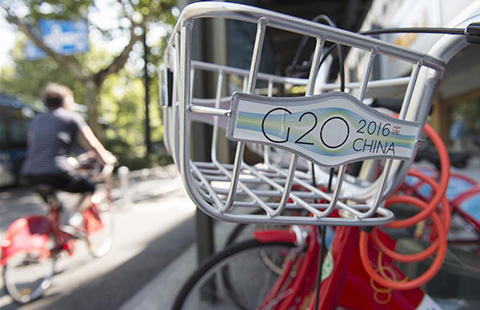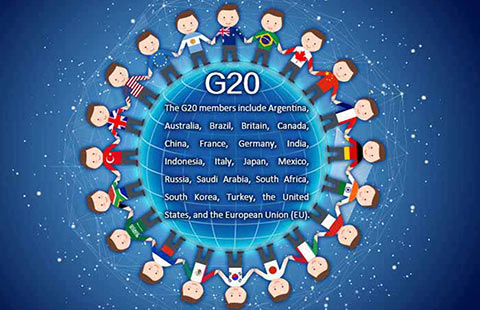Analyst urges China to share best practices
By Du Juan (China Daily) Updated: 2016-09-04 09:20China should share its clean energy successes at the G20 Summit, and study ways to address the challenges it faces, said Joseph Jacobelli, senior analyst with Bloomberg Intelligence who has been analyzing Asia's energy markets for more than three decades.
"As the host of the 2016 G20 Summit, China will be able to showcase its vast success in shifting its energy use away from thermal coal, a domestically sourced, plentiful and cheap resource, and efforts in cracking down on pollution," Jacobelli said.
He said the summit is an opportunity to share best practices in such areas as energy sustainability, green and climate finance and advances in clean energy technologies.
Since January, China has supplied the National V standard gasoline and diesel, which have low sulfur contents, to 11 provinces and cities, and will upgrade nationwide by the end of the year.
The standard equals the current standard in Europe.
According to Chinese authorities, the move will cut 300,000 metric tons of nitrogen-oxide emissions annually when the new standard fuel is used nationwide.
"It is an opportunity for some G20 members to explore how China's experience could help in further developing their own renewable energy sectors. Meanwhile, the summit should also be an avenue for China to explore ideas on how to tackle the challenges its energy industry faces today," Jacobelli said. Those challenges include ensuring energy supply security and reforming its domestic energy pricing system.
"The key may be for governments to accelerate current energy reforms." he added. "Especially, the expansion of market-driven energy pricing so that all energy used reflects the cost of the energy sources and the use of these resources is optimized."
Open energy markets will create competition and the price will guide investments, he said.
Driven by the weak demand, the sector is facing a supply glut and distorted pricing.
"The open, transparent and fair energy markets China wants and the market-based pricing would ultimately address this hurdle," he added.
- Cost of renewable may keep falling
- G20 set to stress role of clean energy
- A new starting point for China's development: Xi
- President gives prescription to world economy
- Over 700 Chinese companies take part in 2016 IFA consumer electronics fair
- B20 summit starts in China's Hangzhou
- UK expert: China will share its prosperity with the world
- China's opening drive benefits all countries: Xi

















